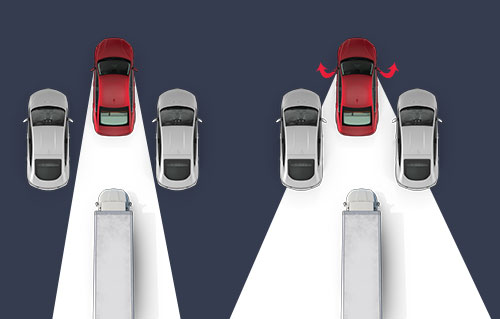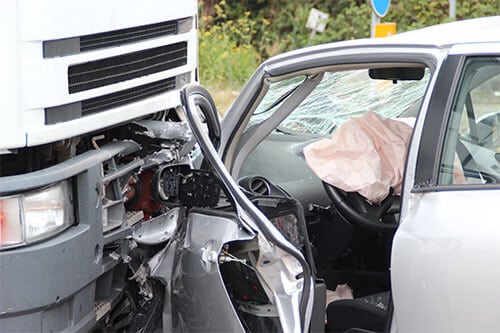BLIND SPOTS CAUSE 20% OF ACCIDENTS
It happens hundreds of times a day, hundreds of thousands of times a year. A driver attempts to change lanes — and ends up in a sideswipe collision with another vehicle, thanks to a blind spot. According to one study by the National Highway Traffic Safety Administration, nearly one in five of all accidents involve drivers changing lanes and crashing into other vehicles they didn’t see.
Common as they are, blind-spot accidents are also highly preventable. Traffic gurus say that exercising just a little extra preparation, awareness and caution could save the motoring public considerable expense and trauma. Here are a few simple tips for avoiding blind spots while driving.
ARE BLIND SPOTS FIXABLE?
Many people tend to treat blind spots as a design defect of their car. The rear end is too high, the windows are too small, the headrests block the view — sound familiar? It’s true that just about every vehicle is going to present different challenges for drivers trying to keep track of what’s behind them and especially on their flanks. But auto engineering has made great strides in the past two decades in eliminating many design-related blind spots in passenger cars. With seats and especially mirrors properly adjusted, you, too, can conquer blind spots.
THE KEY TO AVOIDING BLIND SPOTS
1. How to Adjust Car Mirrors for Maximum Visibility?
One of the leading causes of blind spots has to do with improper mirror alignment. Many people keep their side mirrors focused on a narrow corridor along the left and right sides of their own car. While it may be comforting to see the immediate vicinity of your car’s back doors in the mirror, that also leaves a substantial area in the adjoining lanes not visible to you. The Society of Automotive Engineers recommends adjusting those mirrors outward, so you can see that area in the “danger zone” to the left and right of your rear quarters.

Ideally, the adjustment should provide a seamless viewing experience as you scan your rear-view mirror and then your side mirrors for traffic behind and on either side of you. You can test the adjustment by taking a spin and seeing if vehicles approaching you from behind show up in your side mirror as they disappear from the rear-view mirror; if there aren’t any gaps in that transition, you’ve gotten rid of the blind spot.
2. Adopt Blind Spot Monitors
If that simple step doesn’t solve your problem, you can also consider adopting some of the wonders of high-tech blind spot monitors offered by many automakers now.
Ford, for example, now has convex integrated blind-spot mirrors incorporated in its side mirrors on several models. Rear cameras are becoming standard in many cars and can eradicate potentially hazardous blind spots when backing up in one’s own driveway. There are also blind spot sensors and a range of aftermarket products that can enhance your ability to assess traffic conditions around you.
But don’t let the technology lull you into not doing a careful visual check before changing lanes. Many people overdo this by looking completely back over their shoulder, taking their eyes off the road in front of them — a risky maneuver, if the driver in front of you happens to brake at that moment. Driving experts advise turning your head no more than ninety degrees in either direction, enough to get a quick peripheral view of approaching traffic, before making your move.
3. Be Aware of Other Drivers’ Blind Spots
Finally, one other piece of advice. Be aware of other drivers’ blind spots, too, and try to stay out of them. If you can’t see the mirrors of that 18-wheeler you’ve been shadowing for the past two miles, chances are the truck driver can’t see you, either, and could change lanes right into you.
THE CAR ACCIDENT ATTORNEYS AT FDAZAR
For more than thirty years the attorneys at Frank Azar Car & Truck Accident Lawyers have helped thousands of injured people obtain complete and timely compensation for their losses. Our proven track record and expertise have allowed us to grow into the largest personal-injury law firm in Colorado, with offices in Denver, Aurora, Thornton, Fort Collins, Greeley, Grand Junction, Colorado Springs, and Pueblo. If you’ve been injured in a car, truck, or motorcycle accident, you may be entitled to compensation. Please call the attorneys at FDAzar day or night at 800-716-9032 or contact us here for a free consultation and no-obligation evaluation of your case.




